第22章 BOOK VI(2)
If these metals were laid up in any tower in the kingdom, it would raise a jealousy of the Prince and Senate, and give birth to that foolish mistrust into which the people are apt to fall, a jealousy of their intending to sacrifice the interest of the public to their own private advantage. If they should work it into vessels or any sort of plate, they fear that the people might grow too fond of it, and so be unwilling to let the plate be run down if a war made it necessary to employ it in paying their soldiers. To prevent all these inconveniences, they have fallen upon an expedient, which, as it agrees with their other policy, so is it very different from ours, and will scarce gain belief among us, who value gold so much and lay it up so carefully. They eat and drink out of vessels of earth, or glass, which make an agreeable appearance though formed of brittle materials: while they make their chamber-pots and close-stools of gold and silver; and that not only in their public halls, but in their private houses: of the same metals they likewise make chains and fetters for their slaves; to some of which, as a badge of infamy, they hang an ear-ring of gold, and make others wear a chain or coronet of the same metal; and thus they take care, by all possible means, to render gold and silver of no esteem. And from hence it is that while other nations part with their gold and silver as unwillingly as if one tore out their bowels, those of Utopia would look on their giving in all they possess of those (metals, when there was any use for them) but as the parting with a trifle, or as we would esteem the loss of a penny. They find pearls on their coast, and diamonds and carbuncles on their rocks; they do not look after them, but, if they find them by chance, they polish them, and with them they adorn their children, who are delighted with them, and glory in them during their childhood; but when they grow to years, and see that none but children use such baubles, they of their own accord, without being bid by their parents, lay them aside; and would be as much ashamed to use them afterward as children among us, when they come to years, are of their puppets and other toys.
I never saw a clearer instance of the opposite impressions that different customs make on people, than I observed in the ambassadors of the Anemolians, who came to Amaurot when I was there. As they came to treat of affairs of great consequence, the deputies from several towns met together to wait for their coming.
The ambassadors of the nations that lie near Utopia, knowing their customs, and that fine clothes are in no esteem among them, that silk is despised, and gold is a badge of infamy, used to come very modestly clothed; but the Anemolians, lying more remote, and having had little commerce with them, understanding that they were coarsely clothed, and all in the same manner, took it for granted that they had none of those fine things among them of which they made no use; and they being a vainglorious rather than a wise people, resolved to set themselves out with so much pomp, that they should look like gods, and strike the eyes of the poor Utopians with their splendor. Thus three ambassadors made their entry with 100 attendants, all clad in garments of different colors, and the greater part in silk; the ambassadors themselves, who were of the nobility of their country, were in cloth-of-gold, and adorned with massy chains, ear-rings, and rings of gold: their caps were covered with bracelets set full of pearls and other gems: in a word, they were set out with all those things that, among the Utopians, were the badges of slavery, the marks of infamy, or the playthings of children.
It was not unpleasant to see, on the one side, how they looked big, when they compared their rich habits with the plain clothes of the Utopians, who were come out in great numbers to see them make their entry: and, on the other, to observe how much they were mistaken in the impression which they hoped this pomp would have made on them. It appeared so ridiculous a show to all that had never stirred out of their country, and had not seen the customs of other nations, that though they paid some reverence to those that were the most meanly clad, as if they had been the ambassadors, yet when they saw the ambassadors themselves, so full of gold and chains, they looked upon them as slaves, and forbore to treat them with reverence. You might have seen the children, who were grown big enough to despise their playthings, and who had thrown away their jewels, call to their mothers, push them gently, and cry out, "See that great fool that wears pearls and gems, as if he were yet a child." While their mothers very innocently replied, "Hold your peace; this, I believe, is one of the ambassador's fools." Others censured the fashion of their chains, and observed that they were of no use; for they were too slight to bind their slaves, who could easily break them; and besides hung so loose about them that they thought it easy to throw them away, and so get from them.